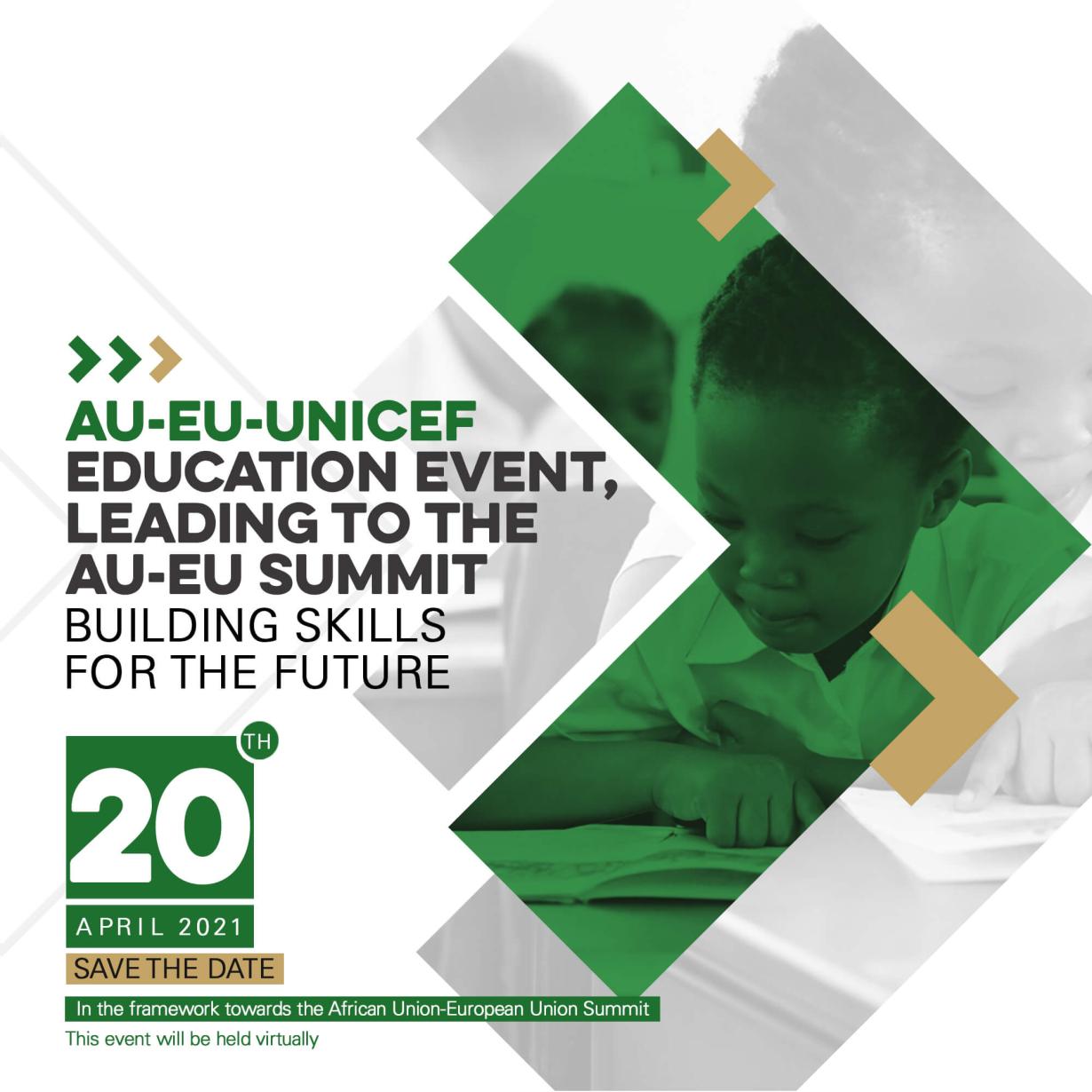
Education central to the European Union's partnership to Africa
The African Union, together with the European Union and UNICEF, organised a high level education event on 20 April entitled “Building Skills for the Future”. The event, which was part of the preparations for the forthcoming African Union-European Union Summit, reiterated the commitment to make education a pillar of the Africa-EU Strategy and a driver of the global recovery, while highlighting the importance of bilateral and multilateral partnerships in achieving quality, inclusive and equitable education at all levels.
“By 2035, 450 million Africans will enter the labour market, and 75% of them will do jobs that do not exist yet.” said Jutta Urpilainen, European Commissioner for International Partnerships, one of the hosts of the summit. Because of this demographic growth, investment on education to match the need of the labour markets has become a strategic issue.
Josep Borrell, European Commission Vice President and High Representative of the European Union for Foreign Affairs and Security Policy opened the event by highlighting the leading role of the European Union in promoting education around the world. Referring to the partnership with UNICEF and the African Union, he concluded “Our joint investments in education, science, technology and skills development will help create a sustainable growth. Because only together we can achieve the common objectives established in the UN Agenda 2030 and the Agenda 2063.”
Henrietta H. Fore, Executive Director of UNICEF, stressed the role of the UN agency in supporting the building of safe learning environments, especially for girls, and training teachers in developing socio-emotional skills, hybrid learning and creativity to ensure quality education. “Covid 19 has opened up opportunities to rethink how, when and where we deliver education and skills development through multiple, flexible and innovative learning pathways. […] This is a once-in-a-generation opportunity that we must all seize with urgency and the conditions are converging to do so.” UNICEF intends to allocate 40% of its funds to Africa, especially now that 65% of the poorest countries are cutting their education budgets.
Jutta Urpilainen, European Commissioner for International Partnerships emphasized the importance of acting now, and strategically, particularly in view of the Covid-19 crisis. The Commissioner affirmed the strategic role of the partnership between Africa and Europe in ensuring a just digital, and green transition as a means of achieving a full recovery. In view of these transformations, human capital development and the strengthening of education systems are essential to the EU's agenda for Africa.
According to Urpilainen, Europe’s priority is to achieve real social inclusion by reaching out to all boys and girls, especially the latter, through new digital tools, and to support teacher training to facilitate and guide this transformation and equip students with the right skills to meet the demand of the African labour market. “There is not a one-size-fits-all solution. Contexts are different, education systems are different, labour market needs are different. The European Union will therefore strategically use a mix of modalities tailored to the potential capacities and needs of partner countries” she insisted. Therefore, the creation of an African Skills Agenda based on the success of the European one will be crucial. In order to do so, the Commissioner affirms the decision of the European Union to increase investment in this area from 7% to 10%.
Finally, she added that the European Union and its member states are committed to maximise the impact and the results of the education transformation, together with a reinforcement of a multilateral partnership with global partners as UNESCO and the African Union, civil society as well as the private sector.
Education is not only at the centre of the joint Africa-EU Strategy, but this partnership will be a pillar in building the education and skills for the future, because “education cannot wait” she affirmed.
If you want to watch the full event here: https://youtu.be/uRwjAYCPhR0
Background
The ETF is the agency of the European Union that supports the countries surrounding the European Union to make the most of their human capital through the reform their education, training and employment systems. The ETF works in the EU neighbourhood and enlargement countries, including the Southern and Eastern Mediterranean, the Western Balkans, Turkey, Eastern Europe and Central Asia. It also supports EU cooperation with the African Union in the area of skills.
Did you like this article? If you would like to be notified when new content like this is published, subscribe to receive our email alerts.